Have you ever wondered how a Specialist Plastic Surgeon goes about their day? Specialist Plastic Surgeon at Valley Plastic Surgery, Dr Matthew Peters, walks us through a typical day in his very busy shoes.
 0515: Alarm goes off. Exercise with my two older children until 0600. Stove-top espresso machine packed and put on the gas. Six bowls out with Weetbix and fruit for all.
0515: Alarm goes off. Exercise with my two older children until 0600. Stove-top espresso machine packed and put on the gas. Six bowls out with Weetbix and fruit for all.
0630: Out the door with my two eldest children for school drop off – ten minutes of conversation, mainly with my daughter whilst my son checks the cricket scores on his phone…
0700: Ward round at hospitals. I Often have in-patients at both Brisbane Private Hospital and Northwest Private Hospital, and occasionally at the Wesley as well. Depending on patient need, I aim to see all of my inpatients daily, and will see them either at the start or at the end of my day. Thankfully, I have excellent nursing support at all of the hospitals in which I work, and their clinical acumen is first-class, so if I am running a bit behind, I can call ahead for a detailed handover. Comfort, movement, observations, medications, drains, garments, wounds – there’re many elements to consider with my patients, all of which are reviewed so as to achieve an optimal outcome and return to activity
How each day travels from here can be quite different. My schedule comprises of a mix of consulting at Valley Plastic Surgery (or at one of my satellite clinics at North Lakes or Northwest Private Hospital), and operating. Operating lists can be either all or half-day, in either day or full-facility hospitals.
 0800: Consulting at Valley Plastic Surgery. This place is my main hub. Dr Ray Goh and I bought the premises in 2013, redesigned them in 2014, and opened the doors in 2015. The building was originally built by McWhirters – my actual office was once used to make window displays for their shopfront, according to an 89 year old patient of mine who spent 45 years making them exactly where I sit today. I see him every three months for follow up, and he brings newspaper clippings and stories to every visit.
0800: Consulting at Valley Plastic Surgery. This place is my main hub. Dr Ray Goh and I bought the premises in 2013, redesigned them in 2014, and opened the doors in 2015. The building was originally built by McWhirters – my actual office was once used to make window displays for their shopfront, according to an 89 year old patient of mine who spent 45 years making them exactly where I sit today. I see him every three months for follow up, and he brings newspaper clippings and stories to every visit.
Consulting involves meeting new people with new problems, reviewing immediate post-operative patients upon discharge from hospital, and reviewing longer term patients to assess the outcome of my surgery, or to check their progress should there be a medical concern that requires surveillance. I enjoy consulting because I like to talk. I like to know a lot about my patients, their lives and their interests, which is a style taught to me by Professor Darryl Wall, a recently retired general surgeon. I tend to share my own personal life stories as well. Communication is key in my line of work and I aim to foster an open line with every patient I meet.
1200: The front-desk staff worry about me not eating, so always procure some food and a coffee from across the road. I eat this whilst replying to emails from the Royal Brisbane and Women’s Hospital. I am the Director of Plastic Surgery there and have to address issues regularly. I don’t know how I would have managed private practice and that position before the advent of the iPhone.
1215: In the car and off to Brisbane Private Hospital for an afternoon operating list. Car time usually gives me an opportunity to make phone calls to patients if there’s an urgent result, or to staff at the Royal Brisbane if required. I get changed into surgical scrubs upon arrival, say hello to the nursing and anaesthetic team, and then move on to meet, review and mark-up the surgical plan for the first patient. I take with me three markers, a tape measure and callipers, and a torch. Once done, I usually grab another coffee and some water and then undertake a five-minute surgical scrub to clean my hands. Depending on the cases booked, the operating list can last anywhere into the late hours of the night. Good patients, good colleagues, and music courtesy of the anaesthetist, and we’re good to go until the work is done.
 2000ish: Post-op ward round to make sure there are no concerns before heading home.
2000ish: Post-op ward round to make sure there are no concerns before heading home.
2030ish: On the phone in the car, usually to a mentor of mine, or my brother. I speak to both of them almost daily.
2100: Home. My wife is an eye surgeon and is often arriving home around the same time. We have four kids and have an amazing team of nannies – they give us a rundown of the day at home and have usually prepared some food for us to eat. We take turns showering, eat our food, and chat about the day we’ve both had. Our lines of work, despite being different, often have similarities that allow us to debrief and de-stress
2300: Bed.

